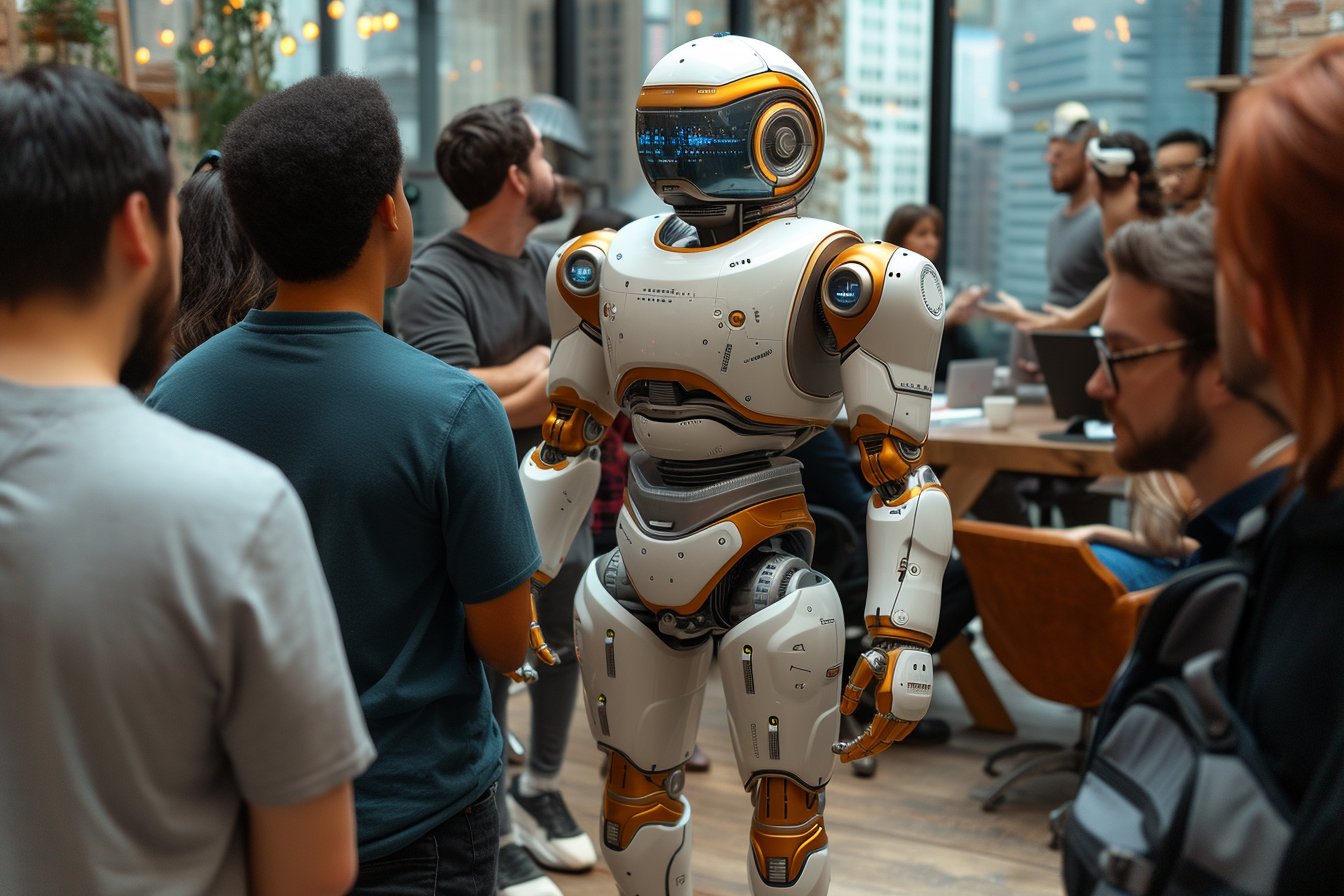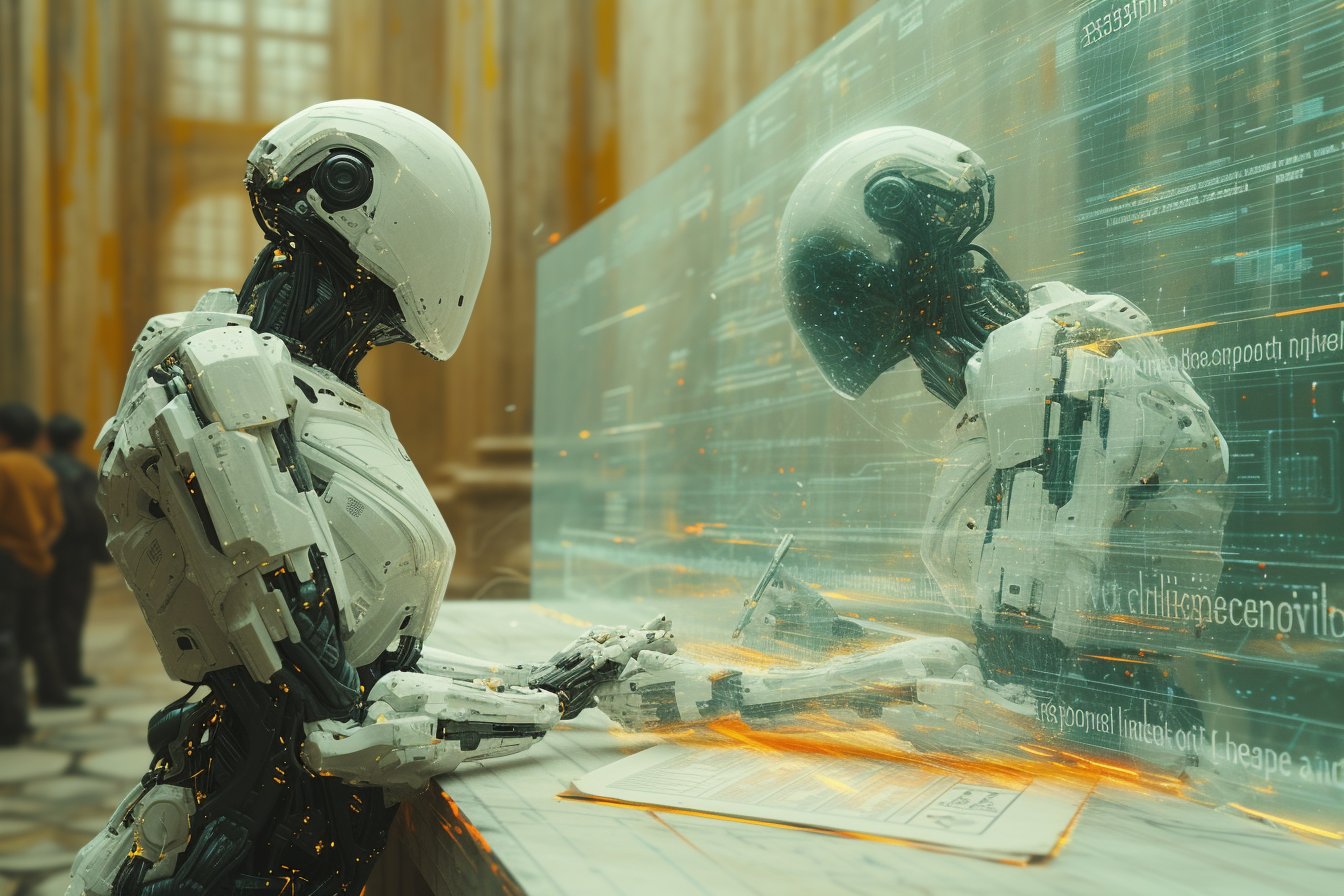A Revolution in the World of Work
As Artificial Intelligence (AI) continues to make great strides, there is a growing concern over its potential impact on the future of work. With AI already creating significant changes in numerous industries, we find ourselves at a pivotal crossroads where we must grapple with the new reality that lies ahead. Renowned film director Erik Gandini’s latest project, After Work, explores the potentially transformative consequences of AI and job automation, raising essential questions about what the human workforce may look like in years to come.
Taking Over Creative Jobs?
One of the most pressing concerns surrounding AI’s penetration into the job market is whether or not it will usurp creative roles – those positions long considered the domain of human ingenuity and artistry. Giants such as Microsoft, Google, and OpenAI are ardently developing AI-driven tools for text, music, and image creation. While some experts maintain that these advancements will free humans from mundane tasks, others, like Gandini, question what humans might be left to do if AI indeed takes over both the menial and the creative jobs.
Inequality Issues in the Workforce
An equally significant topic touched upon in Gandini’s film is the issue of inequality within the workforce. With an estimated 18% of jobs already impacted by the global AI boom, it becomes vital to address how advancements in technology may affect various strata of workers differently. This encompasses not only economic inequality but also considers educational and social disparities faced by those working within an increasingly automated economy.
Strategies for a More Equal Society
To cope with the challenges that AI may pose to the workforce, Gandini looks at potential solutions, particularly universal basic income (UBI). Universal Basic Income, in essence, is a regular cash payment made to individuals without any stipulations attached. By providing a financial safety net, UBI proponents argue that it could reduce poverty and allow for greater economic flexibility.
Several countries have already implemented or experimented with this concept as a means of addressing economic challenges. Finland, Spain, and Sudan are notable cases where governments have trialed UBI systems in various forms:
- In 2017, Finland conducted a two-year pilot project wherein 2,000 randomly-selected unemployed citizens received a monthly payment of €560 (~$600).
- Spain has recently initiated a program offering a guaranteed minimum income for around 850,000 vulnerable families, ensuring a stable income amidst unstable job prospects.
- Sudan’s efforts with UBI involve a direct cash transfer system targeting millions of people throughout the country who face acute food insecurity.
Preparing for the Future: Education and Skills Development
Given the increasing influence of AI on work, it becomes essential to prepare workers and communities for impending shifts in skill requirements. Instead of treating automation as an unstoppable force that will leave humans jobless, we should focus on preparing ourselves for the changes that lie ahead through education and skills development.
Emphasizing STEAM Education
To equip various members of society with valuable tools that can help them adapt to an AI-driven economy, we must emphasize Science, Technology, Engineering, Arts, and Mathematics (STEAM) education. By fostering a strong foundation in these subjects from primary to tertiary levels, workers will be better positioned to find gainful employment in an increasingly tech-driven job market. Additionally, attention should be given to updating and upskilling the current workforce through reskilling programs and professional training initiatives.
Seeking Balance: Embracing AI While Safeguarding Human Potential
In conclusion, while AI undoubtedly poses challenges by disrupting traditional notions of work and productivity, we must strive for a balanced approach that embraces its potential whilst preserving human skills and creativity. By implementing solutions such as universal basic income, promoting STEAM education, and supporting skills development programs, we can hope to create an inclusive society that benefits from the advancements in AI without sidelining human talent and ingenuity.






